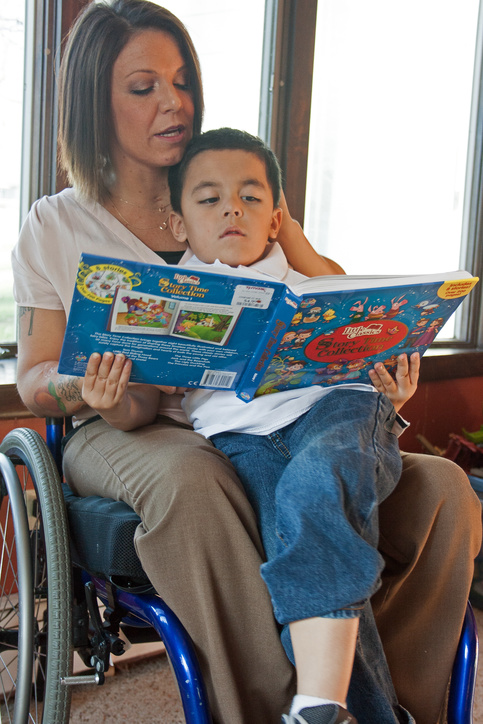Useful Resources and Supports for Mothers with Disabilities
Download PDF | Plain-language version

The Disabled Parenting Project (DPP) hosted two Mother’s Day Twitter Chats. In 2016, 152 people participated and there were 900 tweets. In 2017, 83 people participated and there were 377 tweets. Each Twitter Chat lasted an hour and revealed many key themes. Among the important discussions was a dialogue about resources and supports that have facilitated their motherhood. The following are the key themes and sample quotes.
Peer Supports
Most of the mothers described the importance of learning from other parents with disabilities as they navigate motherhood.
-
“I go to other members of the disabled community who are supportive-some moms some not.”
-
“Support groups of other disabled mothers for relatability, swapping tips/resources/best practices/sharing frustrations!”
-
“Peer support is crucial. Disabled moms need access to same supports and connections nondisabled moms have!”
-
“My biggest support has been from other moms with dwarfism. Peer support/mentoring is critical.”
Online Resources
Several mothers utilize the internet to gain information. The internet is also used by many disabled mothers to connect with their peers.
-
“We have a listserv [for] parents @ nfbnet.org; just launched blindparents.org w/ mentoring program available.”
-
“Fortunately, now there are online resources/disabled parents’ groups [because] when my daughter was younger [it] was hard to find any.”
-
“I go to http://disabledparenting.com for all resources disability & parenting.”
-
“I found few bloggers, but mostly I felt like I was writing my own rules.”
-
“Other [people with disabilities] moms on the internet and in real life, general internet searches, but mostly I've figured out things on my own.”
Services and Supports
For some mothers, existing services and supports facilitate their motherhood.
-
“It depends on your disability. As a blind mom, I get support and in home training from the NY commission for the blind.”
-
“Having a post-delivery nurse who "got me" was [important] I actually asked to have the same nurse with my 2nd [c-section] as my 1st.”
-
“Any service that can listen to what the mother thinks she needs rather than dictating her needs for her. Hard to find.”
Natural Supports>
Many of the mothers use natural supports, such as family and friends, to assist with parenting.
-
“I have a tight knit mom crew that I talk to daily. I also talk to trusted teachers who are able to think outside the box.”
-
“Natural supports often come from an integrated, inclusive community. These helps all families.”
-
“I had a great playgroup. A strong village is key. My mom who always said I could do it all.”
-
“I also recruit family and friends to give my daughter experiences she’s wanted that aren’t accessible to me (ice skating).”
-
“Honestly, a supportive parenting partner. Having someone who knows my needs and helps support me.”
Equipment and Technology
Several of the mothers explained how important equipment and technology is for them in caring for their children.
-
“My wheelchair, ironically. My power chair is crucial [to] facilitating my ability [to] care for 2 young children.”
-
“I find it helpful to keep up with mainstream parenting gadgets and programs to see how we can make them fit.”
-
“The universal design of SO much technology helps [with] the option to outsource services-even online grocery shopping.”
